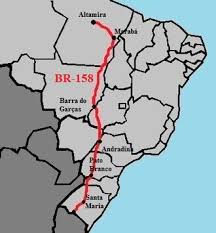Understanding Brazil: Current Highlights and Global Relevance

Introduction
Brazil, the largest country in South America, has always been a focal point in global discussions due to its rich culture, biodiversity, and economic potential. In recent months, Brazil’s political landscape and environmental policies have gained international attention, making it a critical subject of discussion among global leaders and environmentalists. Understanding the dynamics within Brazil can offer insights into broader aspects of international relations, conservation efforts, and economic trends.
Recent Developments in Brazil
This year, under the leadership of President Luiz Inácio Lula da Silva, Brazil has made significant strides in environmental policy, particularly in combating deforestation in the Amazon rainforest. The administration has placed a strong emphasis on sustainability, marking a shift from the policies of previous years. Reports indicate a promising decrease in deforestation rates in the Amazon in the first half of this year compared to the previous year, a remarkable achievement considering that the rainforest is a vital carbon sink vital for combating climate change.
In addition to environmental issues, Brazil is also addressing ongoing economic challenges. The government has announced new social welfare programs aimed at reducing poverty and addressing inequalities that have been exacerbated by the pandemic. The reforms are intended to stimulate the economy which remains burdened by inflation and unemployment rates that, though improving, are still a concern for many citizens.
Political Climate and International Relations
On the political front, Brazil’s new government has sought to strengthen relationships with other countries, particularly in the context of global climate agreements and trade partnerships. Lula’s attendance at various international summits has highlighted Brazil’s commitment to playing a more active role in global governance. The reestablishment of Brazil’s role as a leader in South America is evident as Lula engages in discussions with neighboring countries on shared goals, particularly around trade and environmental sustainability.
Conclusion
As Brazil navigates its path in both domestic and international arenas, its developments promise significant implications for global partnerships and environmental conservation efforts. Observers note that Brazil’s actions in the coming months will be vital in shaping not only its future but also the collective approach to pressing global challenges like climate change and economic recovery post-pandemic. For readers, remaining informed about Brazil’s evolving role can enhance understanding of broader geopolitical trends and environmental stewardship efforts essential for the planet’s health.







